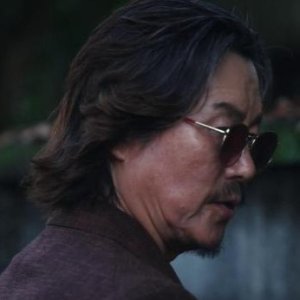This review may contain spoilers
Pursuing genuineness
Injustice: this threat that plans overhangs us all and strikes ruthlessly on some. And when it happens, we always have the choice between either consenting to its fateful sentence, or declining it and attempting to set the record straight.
That is 『Shoutai』's central issue: main character Keiichi Kaburagi, sentenced to death because of human carelessness for a crime he never committed, seeking truth in a race — or rather chase — against the clock. Thus showing humanity under its bad aspects, the movies does it too in a good light: naturally through Keiichi but also through the other characters, whose actors display neat performances. A narrative problem however lies with KK, who possesses way too many skills considering his education and displays such incredible kindness that his innocence is almost instantly recognized by the people he meets along his journey. But that facet is probably due to the inherent Christian thread of the movie: the MC not only comes from a Christian orphanage, he also is a kind of metaphor of Jesus, who was also condemned to death but still converted the people around him while believing in the good of this world (as Kaburagi says himself). That is well portrayed through an enthralling storytelling split in clearly identified chapters, through which we run successively with a mundane OST but a thrilling tension, a clever camera and even well-crafted special effects.
Coming from a novel with a first adaptation as a series in 2022, 『Shoutai』 makes good use of the medium of cinema narrate its story. The end might be predictable, but the piece of work does convey its critic of death sentence, along with a reflection on identity (as its Japanese title entails): our real identity (*shoutai*) may be defined by others, we alone carry it.
That is 『Shoutai』's central issue: main character Keiichi Kaburagi, sentenced to death because of human carelessness for a crime he never committed, seeking truth in a race — or rather chase — against the clock. Thus showing humanity under its bad aspects, the movies does it too in a good light: naturally through Keiichi but also through the other characters, whose actors display neat performances. A narrative problem however lies with KK, who possesses way too many skills considering his education and displays such incredible kindness that his innocence is almost instantly recognized by the people he meets along his journey. But that facet is probably due to the inherent Christian thread of the movie: the MC not only comes from a Christian orphanage, he also is a kind of metaphor of Jesus, who was also condemned to death but still converted the people around him while believing in the good of this world (as Kaburagi says himself). That is well portrayed through an enthralling storytelling split in clearly identified chapters, through which we run successively with a mundane OST but a thrilling tension, a clever camera and even well-crafted special effects.
Coming from a novel with a first adaptation as a series in 2022, 『Shoutai』 makes good use of the medium of cinema narrate its story. The end might be predictable, but the piece of work does convey its critic of death sentence, along with a reflection on identity (as its Japanese title entails): our real identity (*shoutai*) may be defined by others, we alone carry it.
Was this review helpful to you?







